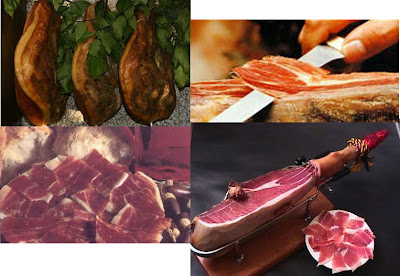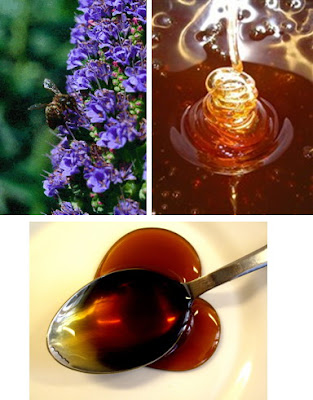

ALHEIRAS SAUSAGE OF MIRANDELA
It was created by Jews in the fifteenth century as a ruse to escape the meshes of the Portuguese Inquisition. As their religion prevented them from eating beef and pork, Jews were easily identifiable by their persecutors for not prepare nor smoke the common pork sausages. Therefore, beef and pork were replaced by a huge variety of meats, such as veal, rabbit, turkey, duck, chicken and sometimes pigeons, which would then be mixed with a bread dough for consistency, recipe that was rapidly popularized among Christians.

Nowadays, the most renowned alheiras are those from Mirandela, produced in accordance with the tradition of North Easterner smokehouses, to the richness of pork meat and poultry, tempered by golden olive oil from Terra Quente, joins in the nobility of hunting, hare and pheasant.
SMOKED FILLET SAUSAGE AND HAM OF LAMEGO

The origin of the smoked sausage lost itself on time, when men felt the need to preserve meat for long periods. Improvements to this technique introduced by the Greeks and Romans, led them to smoke foods with different types of wood in order to change its flavour, enriching it.
 A friar heritage legacy of the Cistercian monks, which confuses itself with the beginnings of the nationality and produced in a rough mountainous plateau, the smoked sausage and ham of Lamego are intense but smooth, strong but delicate.
A friar heritage legacy of the Cistercian monks, which confuses itself with the beginnings of the nationality and produced in a rough mountainous plateau, the smoked sausage and ham of Lamego are intense but smooth, strong but delicate.
II - PRODUCTS OF THE NATURE

HONEY OF HEATHER FLOWER
Honey collection by humans is an ancient activity. Humans began hunting for honey at least 10,000 years ago. In many cultures, honey has associations that go far beyond its use as a food. In language and literature, religion and folk belief, honey is frequently a symbol or talisman for sweetness of every kind. In the Roman Empire, honey was used instead of gold to pay taxes, and in some parts of Greece, it was formerly the custom for a bride to dip her fingers in honey and make the sign of the cross before entering her new home to ensure sweetness in her married life, especially in her relationship with her mother-in-law. For at least 2700 years, honey has been used to treat a variety of ailments through topical application, but only recently have the antiseptic and antibacterial properties of honey been chemically explained. Heather is a low flowering bush shrub which has spectacular purple flowers, often create a carpet of colour, and grows in the uplands across the rugged Gerês Mountains. The heather honey of Gerês is collected at the end of July. Its colour is quit dark, almost amber. It is a smooth, rich flavoured and full bodied honey with a distinctive aroma. The initial taste is slightly toffee, and it is soon followed by a cooling sensation in the back of the mouth, it has complex aftertastes with a hint of aniseed. Heather honey needs very careful harvesting and delicate handling before it is bottled to retain all its unique natural properties. This honey has diuretic qualities and is good for renal problems.
Heather is a low flowering bush shrub which has spectacular purple flowers, often create a carpet of colour, and grows in the uplands across the rugged Gerês Mountains. The heather honey of Gerês is collected at the end of July. Its colour is quit dark, almost amber. It is a smooth, rich flavoured and full bodied honey with a distinctive aroma. The initial taste is slightly toffee, and it is soon followed by a cooling sensation in the back of the mouth, it has complex aftertastes with a hint of aniseed. Heather honey needs very careful harvesting and delicate handling before it is bottled to retain all its unique natural properties. This honey has diuretic qualities and is good for renal problems.

Taste it simple, in a cup of tea, spread it onto crusty bread or a toast, and let yourself be involved by a powerful velvet sensation, warmingly smooth.
OLIVE OIL
It is a fruit oil obtained from the olive (Olea europaea; family Oleaceae), a traditional tree crop of the Mediterranean Basin, where wild olives were collected by Neolithic peoples as early as the 8th millennium BC. It is commonly used in cooking, cosmetics, pharmaceuticals, and soaps and as a fuel for traditional oil lamps. Olive oil is considered healthy because of its high content of monounsaturated fat (mainly oleic acid) and polyphenols. Homer called it "liquid gold."

In ancient Greece, athletes ritually rubbed it all over their body. Drops of it seeped into the bones of dead saints and martyrs through holes in their tombs. Olive oil has been more than mere food to the peoples of the Mediterranean: it has been medicinal, magical, an endless source of fascination and wonder and the fountain of great wealth and power. In Jewish observance, olive oil is the only fuel allowed to be used in the seven-branched Menorah in the Mishkan service. For Christians, olive oil has religious symbolism for healing and strength and to consecration — God's setting a person or place apart for special work. In Islam, olive oil is mentioned in the Quranic verse: "God is the light of heavens and earth".

The most traditional way of making olive oil is by grinding olives. First the olives are ground into an olive paste using large millstones. The olive paste generally stays under the stones for 30–40 minutes. After grinding, the olive paste is spread on fibre disks, which are stacked on top of each other, then placed into the press. Pressure is then applied onto the disk to further separate the oil from the paste. Our product is an extra-virgin olive oil. It comes from the first pressing of the olives, contains no more than 0.8% acidity, and is judged to have a superior taste. There can be no refined oil in extra-virgin olive oil. Deliciously healthy, gentle as a feather, embark yourself on a journey into Mediterranean cuisine, and awake for new sensations that this product born of the sun, land and sea has to offer you.
QUEIJO DA SERRA - MOUNTAIN CHEESE
Columela, a Roman army official, born in the Iberian Peninsula about 2000 years, describes the cheese manufacture in what was the first treaty of agriculture. In the Middle Ages, Gil Vicente render him homage. But, the first major research on the Serra da Estrela cheese only began at the end of the nineteenth century.
Originally from mountains where ancestral transhumant pastureland practices still survive, it is a cheese made exclusively of sheep milk from Bordaleira race, coagulated by the Cynara cardunculus L. thistle, a spontaneous plant from Serra da Estrela used to curdle the milk that will become Queijo da Serra.

Made in winter, its success once depended on the hands temperature of the women who produce it in cold granite houses, typical of the region architecture. Its unmistakable characteristics of aroma and taste, along with its yellowish colour, half-soft paste, more creamy poring out or thicker according to its maturation, fully satisfy the most demanding palate.


No comments:
Post a Comment